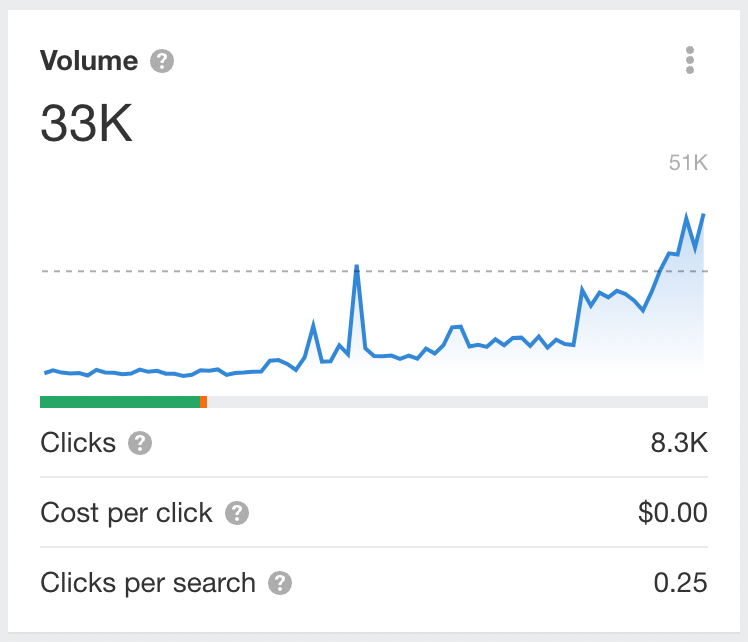Why you shouldn't write an SEO-driven blog
There are plenty of boring articles we skim through when doing a Google search. We click on the first results and bounce back to search for a better fit. They are all comprehensive but eventually all look the same. Why is this happening and how to avoid it?

SEO is an effective marketing channel for creators small and large. If you plan to publish written content it can be a game-changer to learn SEO and implement processes supporting SEO-friendly articles. Most of the blogs on the internet don’t receive any traffic and utilizing search engine optimization techniques can easily change that.
But it has its downsides.
I started an SEO-driven blog in 2018. I just landed a job at an SEO agency and became frustrated by clients not getting results with content optimized for search engines. To fight impostor syndrome I set up my own blog, started to dig deeper in SEO, and wrote articles about topics I was genuinely interested in.
I published a lot and I started to get results. Also, I learned a lot from this experience which I translated to client work. Back then I published an article on the upside of writing with SEO in mind.

A few years have passed since then. Now when I look back I see a lot of stuff differently. I see boring search results which I contributed to, content written without any goal, missed opportunities, and changes in my own habits. As a reader, I gravitated away from Google. As a creator, I stopped obsessing with keywords.
This time I would like to share with you what I learned by writing 145 articles on my Hungarian blog, which received 300K+ users from Organic Search.
Longer is not always better. Sometimes it's just boring

Around 2013 Brian Dean published an article about a process used for attracting links for your content. The so-called skyscraper technique outlined three major steps to reach SEO success:
- Find an already well-performing article with a high number of backlinks.
- Create a better / longer article.
- Reach out to websites linking to the other article and offer your “better” article to link to.
Besides generating thousands of pointless emails begging for links, the skyscraper technique contributed to another trend:
It promoted creating boringly long articles.
Adding an extra paragraph, outperforming the first results in word counts became a best practice. Tools like the SEO Content Template of SEMRush accelerated the process by giving an easy-to-understand metric for us: average word count.
You can’t compare (or even identify) engaging storytelling, thorough research, and good style as a beginner. But you can beat word counts.
Content was king until longer content became.
I fall into the trap of writing unnecessary long articles as well. Sometimes I had to because that's what competitors were doing. I published a shorter article several times to see it struggle in search until I didn’t expand it.
But obsessing over word count became a bad habit of mine. Where 200 words would satisfy readers I wrote 800 words because a competitor had 600. Looking back this wasn’t necessary and eventually spoiled the experience of the reader.
Sometimes there is no need for your article

Intent mismatch
When you write an article with the sole purpose of ranking for certain keywords most of the time you can expect one of the following scenarios (Yes, I am kind of obsessed with coming up with a list of threes):
- No ranking + No readers
- Good ranking + Some readers
- Good ranking + Mass of readers
Everyone wants to reach the third phase while most of our efforts are honored by no ranking. But the most interesting part is to answer the question of why you are ranking in the Top 3 positions for your target keywords while getting only a handful of visits from search.
I made this mistake repeatedly in the past.
Most of the time the following process led me to the end result:
- I opened my favorite Keyword Research tool.
- After analyzing competitors, several topics, and related searches I had a list of keywords to choose from.
- I changed the order of the list to contain keywords with the highest Search Volume (which shows how many people search on average for the given keyword in a month) on the top.
- I cherry-picked some keywords.
- I wrote an article targeting the given keyword.
- The article began to rank in position 1-5 with thousands of impressions while getting only an embarrassing amount of clicks.
To have a concrete example I present you one of my articles:

My goal here was simple. I wanted to rank for the keyword “memento mori meaning”. And I did with an average position of 4.8. In the last 28 days, I appeared ~26.000 times in Google Search and managed to secure 68 clicks with an average 0.3% click-through-rate.
Disappointing.

Where did I make a mistake?
I did not consider the intent behind the query. Terms containing “meaning” often signal a strong message: the user wants to know only the meaning of the word, preferably in the possibly shortest version.
In the old era, most of the users would click on one of the first results, read the first paragraph and go on with their lives. Google helped them by displaying content without even clicking on any results.
Simply there is a much smaller market for the keyword than I thought based on only one metric: the search volume.
How can you avoid this?

If you can use an SEO tool then take advantage of the Estimated Traffic feature. If the Search Volume is high but the traffic potential is low, then you can filter out this kind of keyword and write about topics that have true demand. Often pages are ranking for other keywords and this can lead astray. In this cases check what kind of other keyword are the page ranking for and whether you have a chance to go after them

Even without SEO tools, you can drop keywords not worth pursuing. Ask yourself: If you would type the given keywords into Google what would you expect? Would you be satisfied with the content within the featured snippet or would you be interested in digging deeper? Would you click at any results?
If you would not, then probably there are better topics to pursue.
Copycat danger

Before going all on my Hungarian blog I was experimenting with a fitness niche in English: I was writing about intermittent fasting. I learned from articles and Youtube videos, tried out the stuff myself, and wrote similar articles while adding my personal experience.
It didn’t cut it.
There were already hundreds of well-written articles written by experts in English and looking back it didn’t make sense for me to get into a game I can not win.
I used the top articles as a source of truth. I made my outline based on them. I added sections missing in one article but were present in another. I wrote more words. I eventually didn’t create anything new, just mixed up existing resources. This is a common problem when you are checking the top results for several keywords: they are shockingly similar.
They used the same process to create SEO-friendly articles. The very nature of search engine optimization is based on ruthlessly analyzing competitors and beating them in a game that favors no one. The reader gets several versions of the first result and you are doing boring legwork to satisfy an algorithm, not the reader.
Sometimes it simply doesn’t make sense to write another article if already good content is present in the search results. Looking for blue oceans in the SEO Sea may require more work but there is less competition and there is unsatisfied search intent which makes sense to answer.
You will miss opportunities while chasing keywords
SEO-led topics are defined by searches in the past. This presents a challenge for us: should we always have a keyword in mind when writing or is it ok to pursue topics without thinking about SEO?
If you follow only keywords, you limit not just the topics you can write about, but your thinking as well. You will often do research on search-driven mainstream resources. You will write your article while being in a filter bubble and the end result can be a lot of things but most of the time neither interesting nor unique.
I made the mistake in the past to go all-in on SEO with my personal projects. I simply did not let myself write about ideas without keywords and even there I was focusing on keywords with high search volume.
Writing SEO-driven content was comfortable.
I did not have to think about how to get my article in front of the right people. The process took care of that. But sometimes SEO is not the best distribution engine you can get. I started to realize this when my newsletter list reached a size when sending out emails contributed to instant reads and discussions.
Furthermore, there is not always search demand for the topics your audience may be interested in.
If you let go of keywords sometimes then you can:
- Explore new ideas
- Write about the future
- Discuss known but not mainstream problems
- Create case studies to show your results in any field
- Answer questions of your customer in different stages of the customer journey
- Focus on depth instead of touching the surface with shallow content
Sure, you can do some of this with SEO in mind as well, but that's not the case most of the time.
What does a better approach look like?

I am not advocating completely forgetting about SEO. I know that It is a more common problem to write a blog without reaching anyone simply because the creator did not take care of the distribution of his thoughts.
SEO can be a good lever, but it should be only a part of your strategy, and optimizing for keywords shouldn’t be a goal in itself.
There are several ways to get in front of your audience and purposefully deprioritizing SEO-driven articles (or giving a chance for topics without keywords) force you to think about clever solutions.
Cross-posting on Medium, using Reddit, leveraging automation to share your content in social media, or starting a newsletter are all good starting points. But maybe you can simply just write about interesting topics which weren't covered before.
The Takeaway
- Use SEO as a tool and do not treat it as a goal in itself. Publishing content online has much more to offer than ranking for keywords and driving traffic from search.
- Evaluate keywords based on common sense, not just SEO metrics. Search Volume shows you that people type in certain phrases to Google. Do they click on results or get away with instant answers? Do users expect a long article or a paragraph? Does it generate business value or any advantage to rank for this keyword?
- Avoid creating copycat content. If there is already a good content ranking in the search results for your target keyword consider dropping it if you can not add significant value to the topic. Avoid mixing resources and creating copycats.
- Don’t obsess about word count. Often you can rank with shorter articles. Ranking with a long and boring article everyone skim-trough does not contribute to anything meaningful.
- Discover new ideas. Experiment. And subscribe to my newsletter if you would like to read my non-SEO-driven articles in the future.
p.s: I could name the article “Confessions of a recovering SEO” but clickbait is similar in social media like “The Complete Beginners Guide to X” in SEO. Different route, same destination.




